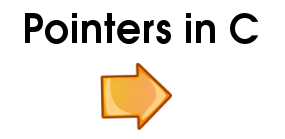 21. What happens if you free a pointer twice?
21. What happens if you free a pointer twice?
If you free a pointer, use it to allocate memory again, and free it again, of course it’s safe
If you free a pointer, the memory you freed might be reallocated. If that happens, you might get that pointer back. In this case, freeing the pointer twice is OK, but only because you’ve been lucky. The following example is silly, but safe:
#include <stdlib.h>
int main(int argc, char** argv)
{
char** new_argv1;
char** new_argv2;
new_argv1 = calloc(argc+1, sizeof(char*));
free(new_argv1); /* freed once */
new_argv2 = (char**) calloc(argc+1, sizeof(char*));
if (new_argv1 == new_argv2)
{
/* new_argv1 accidentally points to freeable memory */
free(new_argv1); /* freed twice */
}
else
{
free(new_argv2);
}
new_argv1 = calloc(argc+1, sizeof(char*));
free(new_argv1); /* freed once again */
return 0;
}
In the preceding program, new_argv1 is pointed to a chunk of memory big enough to copy the argv array, which is immediately freed. Then a chunk the same size is allocated, and its address is assigned to new_argv2. Because the first chunk was available again, calloc might have returned it again; in that case, new_argv1 andnew_argv2 have the same value, and it doesn’t matter which variable you use. (Remember, it’s the pointed- to memory that’s freed, not the pointer variable.) new_argv1 is pointed to allocated memory again, which is again freed. You can free a pointer as many times as you want; it’s the memory you have to be careful about.
void caller( … )
{
void *p;
/* … */
callee( p );
free( p );
}
void callee( void* p )
{
/* … */
free( p );
return;
}
In this example, the caller() function is passing p to the callee() function and then freeing p. Unfortunately,callee() is also freeing p. Thus, the memory that p points to is being freed twice. The ANSI/ ISO C standard says this is undefined. Anything can happen. Usually, something very bad happens.
The memory allocation and deallocation functions could be written to keep track of what has been used and what has been freed. Typically, they aren’t. If you free() a pointer, the pointed-to memory is assumed to have been allocated by malloc() or calloc() but not deallocated since then. free() calculates how big that chunk of memory was and updates the data structures in the memory “arena.” Even if the memory has been freed already, free() will assume that it wasn’t, and it will blindly update the arena. This action is much faster than it would have been if free() had checked to see whether the pointer was OK to deallocate.
22. What is the difference between NULL and NUL?
NULL is a macro defined in <stddef.h> for the null pointer.
NUL is the name of the first character in the ASCII character set. It corresponds to a zero value. There’s no standard macro NUL in C, but some people like to define it.
NULL can be defined as ((void*)0), NUL as ‘\0′. Both can also be defined simply as 0. If they’re defined that way, they can be used interchangeably. That’s a bad way to write C code. One is meant to be used as a pointer; the other, as a character. If you write your code so that the difference is obvious, the next person who has to read and change your code will have an easier job. If you write obscurely, the next person might have problems.